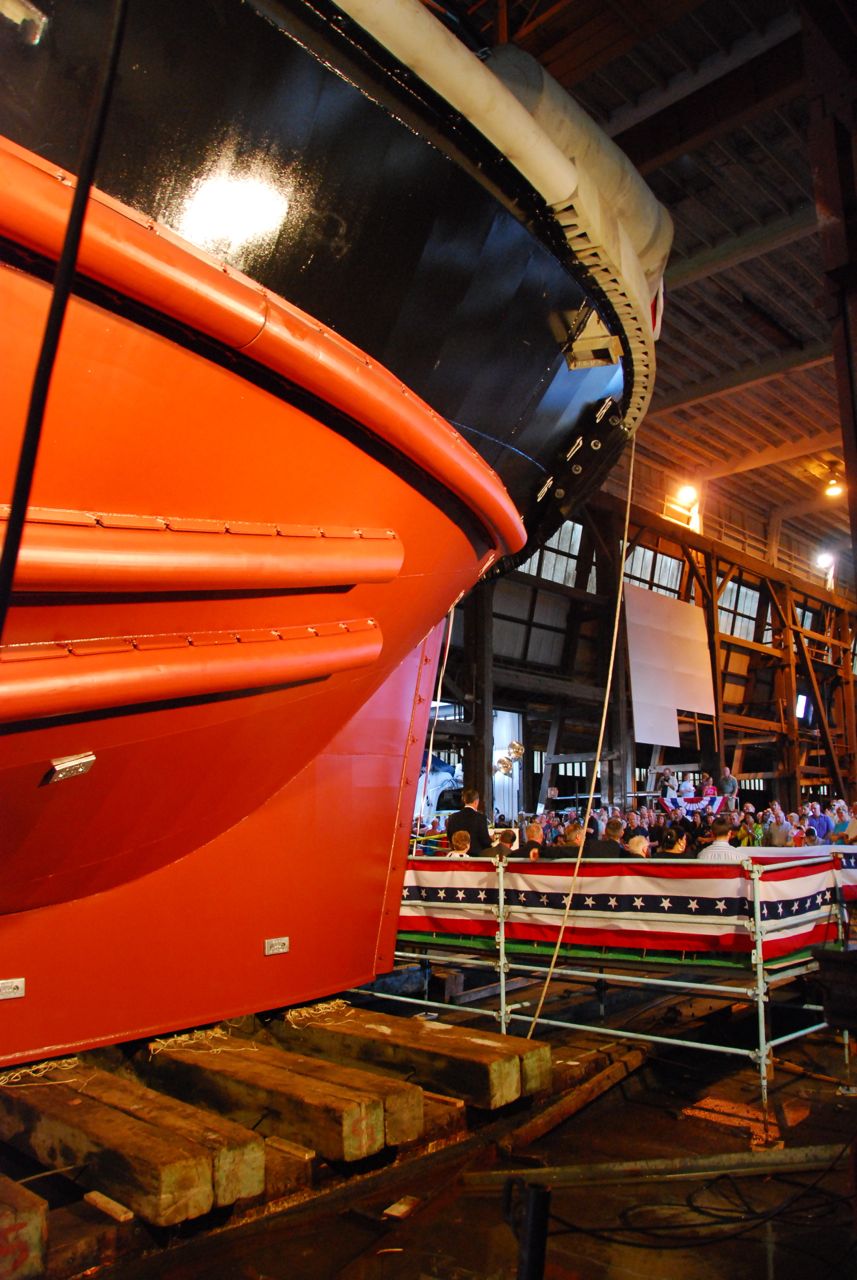It’s not uncommon for shipyards to struggle. The sectors you build for cycle down. You bid some jobs too low and have to suck up the difference, perhaps by borrowing. You get into contract wrangles and end up in court. You get hit with hurricanes and floods. You have bad luck. You mismanage.
At a Martinac tug launch in 2009
For several years in the early 2000s, the yard didn’t land a single newbuild contact but managed to keep the doors open. Then Martinac started getting tug orders. Starting in 2007, they built a couple offshore linehaul tugs for Sause Bros. in Oregon followed by a steady stream of Robert Allan-designed Z-drive tugs, including a series for the Navy.For many years, the fortunes at J.M. Martinac Shipbuilding in Tacoma, Wash., have waxed and waned. Back in the ‘60s, ‘70s and ‘80s, the yard employed up to 350 workers while building a very successful series of tuna seiners. Then that bubble deflated.
The tug work also dried up, but the yard landed the contract for the construction of a high-tech fishing boat for Alaska Leader Fisheries, during which, according to newspaper accounts, the yard had to borrow money from the fishing company to finish the project. But with no other contracts and potential customers leery of the yard’s financial stability — and no money to repay the debt — there was probably no choice but to lock the gates and turn off the lights.
The shipyard was sold at foreclosure auction last Friday. The sole bidder, Washington Landmark Holdings, bought the yard for slightly over $6 million, which is the exact amount owed by Martinac, according to the Tacoma News Tribune. Washington Landmark Holdings is not a known company in Washington, let alone a known boatbuilder.
With a history that goes back to 1924, J.M. Martinac Shipbuilding employed thousands of boatbuilders over the years and built hundreds of high-quality wood and steel vessels. It was a union shop with loyal employees. It was a fixture on the Thea Foss Waterway in downtown Tacoma.
It will be missed.





